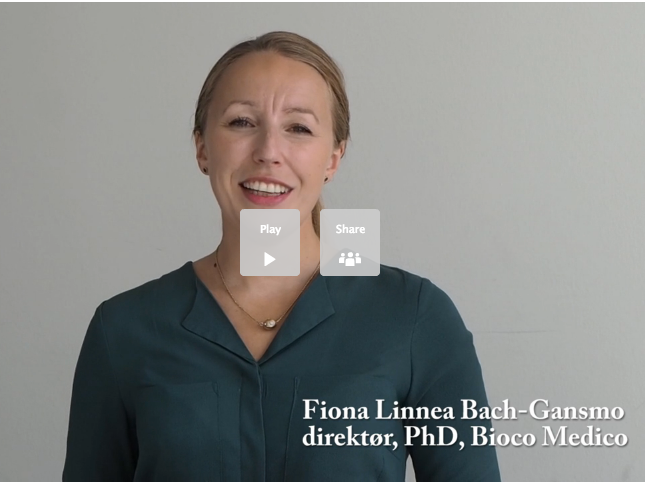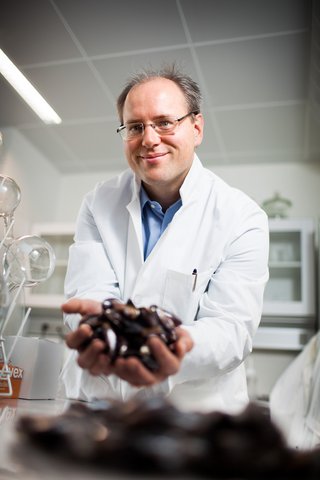Mussel gels must be made ready for surgery
Tubes with mussel glue will in the future be able to replace sutures and staples in the hospitals' operating rooms. Researchers at Aarhus University have copied the mussel glue production and improved it so much that they have established the spinout company Bioco Medico in order to get the glue brought to the market.

Article (in Danish) by PETER F. GAMMELBY. Translated by Lise Refstrup Linnebjerg Pedersen.
An adhesive that can stick to most materials, ranging from teflon to living tissue, can harden underwater and even repair itself, may be found in an operating room near you in the future.
The glue is the result of almost ten years of hard-working research at Aarhus University, where it was not only possible to copy the glue that mussels use to get caught under the water - it has also been possible to copy the process that the mussels use to form the glue.
And not less important: researchers can tailor the glue so that it has different characteristics according to different needs. For some types of surgery there are, for example, the need for the adhesive to harden in seconds. With other types of surgery, it should take a few minutes to harden so the surgeon have time to manipulate the tissue completely in place. Also the color of the glue can be customized.
And then it's biocompatible. The existing adhesive type used for wound closure today is not based on biocompatible chemistry and contains organic solvents. In addition, the mussel can harden under wet conditions and thus be used inside the body.
The process that causes the adhesive to adhere and harden under water is patented and located in a so-called spin-out company, Bioco Medico IVS, whose director and co-owner, Fiona Linnea Bach-Gansmo, are currently busy negotiating with more potential partners - both financial and industrial.
Education in entrepreneurship
Fiona Linnea Bach-Gansmo is a graduate and PhD in nanoscience from Aarhus University. It is also here that she has gained her professional foundation in entrepreneurship.
Aarhus University is part of the Scandinavian Science for Society program, which, with financial support from EU, works on equipping PhD students and postdocs best possible for careers in the private sector - either with their own business or as employees with an eye on the commercial aspects.
Here the newly appointed director has Conducted a Lean Launchpad course, where you develop and test business models based on market and customer surveys as well as sparring with external experts.
"The process has been very useful to me. Both the external sparring and the many interviews with potential customers, users and distributors have given me an incredible understanding of the market we are going to focus on - while focusing on what our glue must be able to in the different markets, "says Fiona Linnea Bach-Gansmo.
You can hear more about this in a video, where you can also see how the glue works.
See the video with Fiona by following the link below.
Original article from Science and Technology: http://scitech.au.dk/roemer/2-17/muslingelim-skal-goeres-operationsklar/
Contact
Director, co-owner Fiona Linnea Bach-Gansmo
Bioco Medico IVS
Phone: 3053 5126
Email: info@bioco.dk
Assoc. prof., co-owner Henrik Birkedal
Department of Chemistry and Interdisciplinary Nanoscience Center (iNANO)
Phone: 2250 8475
Email: hbirkedal@chem.au.dk

The mussel glue was developed by a research team at the interdisciplinary research center iNANO, under the leadership of assoc. prof. Henrik Birkedal. (Photo: Lise Balsby, AU)